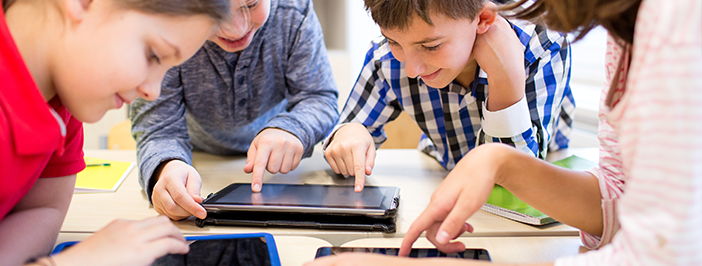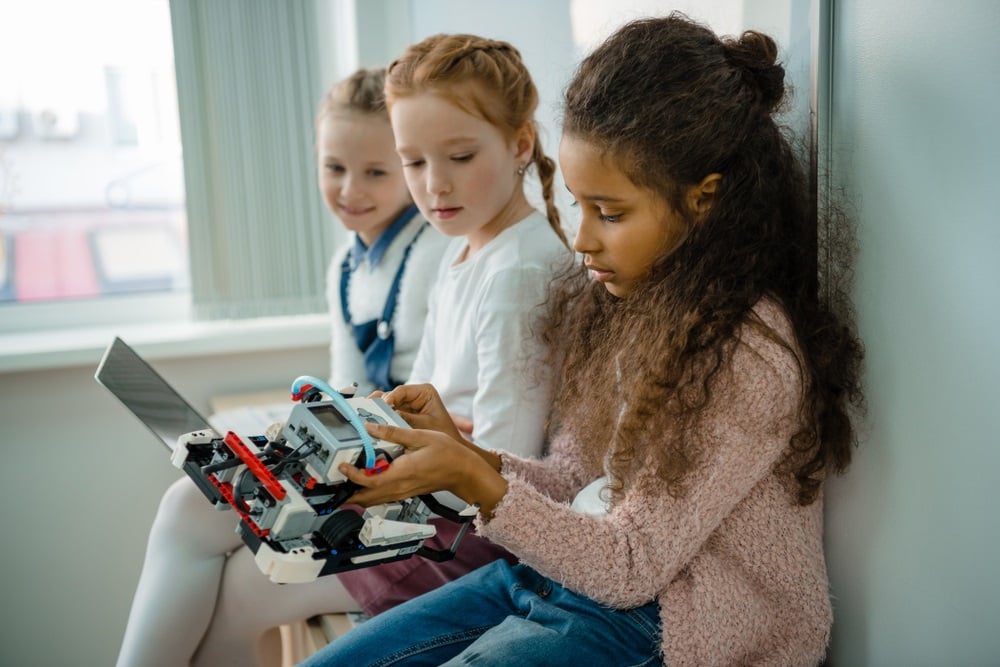Creating an Inclusive Virtual Classroom
Distance learning can feel impersonal and inaccessible, but there are ways to help students feel a sense of connection and access academic material.
 Kanawa_Studio / iStock
Kanawa_Studio / iStock
- 0 Comments
- Jun 30, 2020 10:00:00 AM
- Posted by Natalia Galvis
- Topics: STEM, Coding, students, Edchat, online, virtual learning, distance learning
Why Schools Must Build A Virtualized Ecosystem
Keeping your school’s infrastructure up to date is about more than investing in powerful computers: now that the global health crisis has forced schools to rely more and more on technology in order to implement first distance learning and then blended learning, teachers and students in many countries are being faced with the flaws in their ecosystems.

Not all schools were prepared for this sudden transition, and many have learnt by experience that even equipping the campus with the latest devices is not enough to claim that your institution can boast state-of-the-art educational technology—what if the campus itself becomes inaccessible?
- 0 Comments
- Jun 29, 2020 10:00:00 AM
- Posted by Natalia Galvis
- Topics: STEM, Coding, students, Edchat, online, virtual learning, distance learning
The Many Benefits of STEM Education
If you’re concerned that STEM is taking up too much classroom time, consider this: STEM permeates the curriculum in ways subjects taught in isolation can’t. STEM also teaches the skills students need for success beyond their formal education.

Teachers know that they have to take advantage of every minute of instructional time they can get with students. STEM programs, with their integrated lessons, seem to usurp a considerable amount of instructional time. That can lead to arguments about pulling kids away from traditional subjects like science and math.
However, STEM offers students experiences they can’t get in traditional classrooms. STEM integrates learning through interdisciplinary studies. It affords the application of 21st-century learning skills. And finally, STEM teaches resilience.
- 1 Comments
- Jun 26, 2020 10:00:00 AM
- Posted by Natalia Galvis
- Topics: STEM, Coding, students, Edchat, online, distance learning
7 Takeaways From Our Experiences With Distance Learning
By putting people first and remaining flexible, administrators may be in a position to handle whatever comes next year.

- 0 Comments
- Jun 25, 2020 10:00:00 AM
- Posted by Natalia Galvis
- Topics: students, Edchat, online, distance learning
It’s time to set up a Blended Learning classroom
Distance learning has left a mark on schools worldwide. Even now that educators are getting ready for a gradual reopening, it is clear that they will not allow the efforts made to adapt to the crisis to go to waste: the next phase of the plan for the return to a new normal is blended learning, and it just might be here to stay.
But this combination of distance and in-person learning may leave some teachers unprepared, so let’s take a look at what to expect.

- 0 Comments
- Jun 16, 2020 10:00:00 AM
- Posted by Natalia Galvis
- Topics: Robotics, Summer School, EdTech, STEM, students, programming, STEMchat, summer, Edchat, remote learning, distance learning
Relevant Posts
Popular Posts
Subscribe to Email Updates
-
I Want To Learn MoreADDITIONAL INFORMATION


